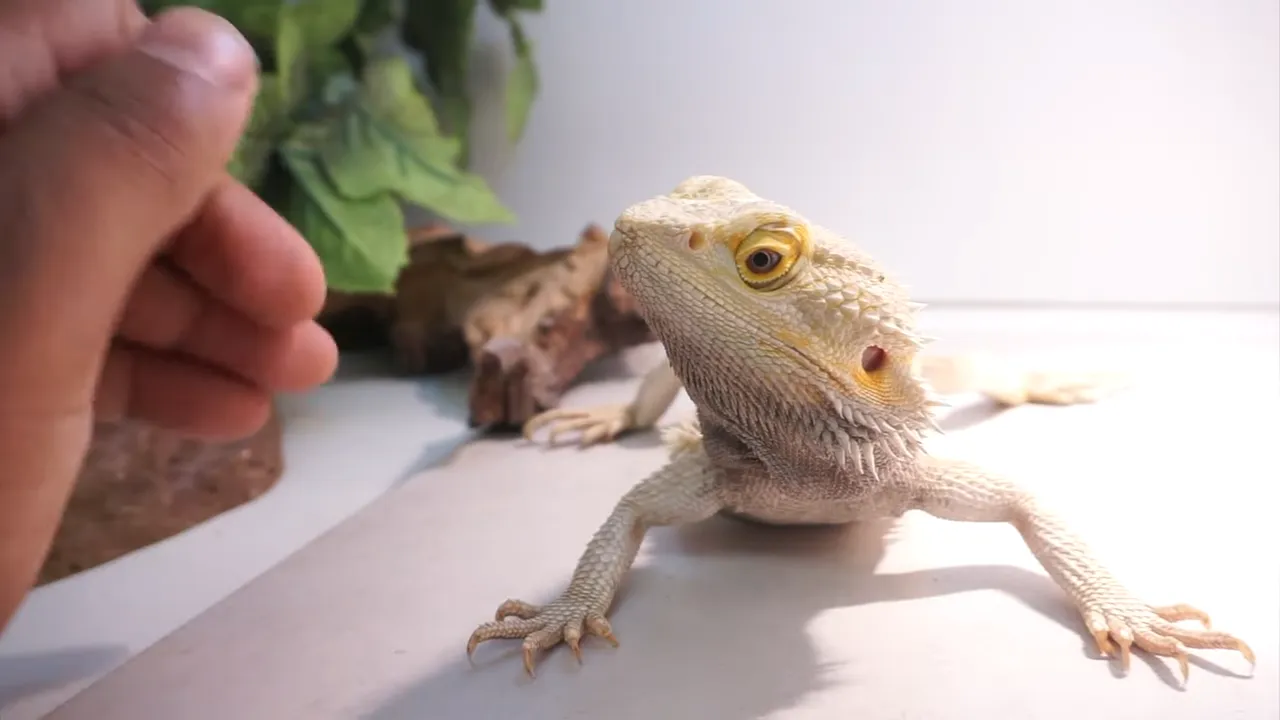Bearded dragons, with their striking appearances and gentle dispositions, have risen in popularity as domestic pets. They originate from the arid regions of Australia, boasting a diet as varied as the diverse terrains they inhabit. From insects to vegetables, these reptiles have a palette that’s both intriguing and diverse.
Can bearded dragons eat pickles? The concise answer is, that while they can consume pickles, it’s not recommended as a regular part of their diet. Pickles contain high amounts of sodium and vinegar, which are not suitable for bearded dragons in large quantities.
It’s vital to remember that pickles, at their core, are cucumbers that have undergone the fermentation process. This process, although making them delicious for humans, introduces elements that may not align with the dietary needs of bearded dragons. Understanding the nuances of their diet helps ensure they live a healthy and vibrant life.
Bearded Dragons Diet Overview
quick insight into the general diet of bearded dragons
Bearded dragons are omnivorous creatures. They have a varied diet that consists of both animal and plant sources. In their juvenile stages, they mainly feed on insects like crickets, mealworms, and small roaches. As they grow and mature, their diet shifts more towards vegetables and fruits, although protein remains an essential component.
Importance of a balanced diet
For these reptiles, a balanced diet is the key to a healthy life. Just like in humans, proper nutrition ensures they have the energy they need, supports their metabolic functions, and helps prevent diseases. A well-fed bearded dragon is more likely to be active, have a vibrant color, and live a longer life. Feeding them a proper mix of proteins, vitamins, and minerals is crucial.
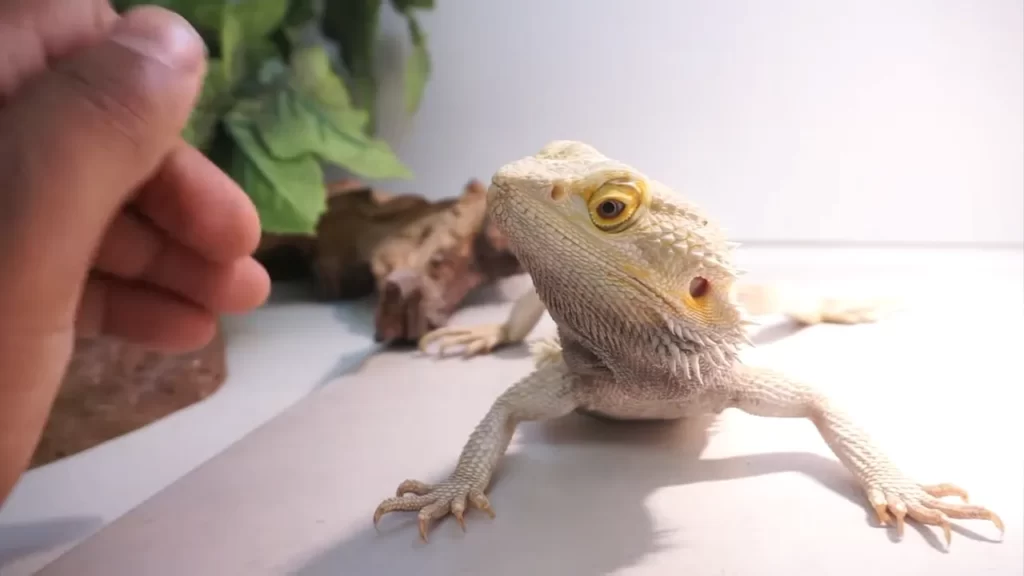
Pickles: What Are They?
Explanation of what pickles are
Pickles are essentially cucumbers that have undergone a fermentation process. This process uses either vinegar brine or saltwater brine to transform the fresh cucumber’s texture and taste. The result is a crunchy, tangy snack loved by many people worldwide.
Breakdown of nutritional content in pickles
While cucumbers are mostly water, the pickling process adds a few more ingredients to the mix. Typically, pickles contain:
- Water: The primary component, but reduced slightly after pickling.
- Vinegar: Adds acidity and tanginess.
- Salt: Used in the brining process.
- Spices: Like dill or garlic, for flavoring.
- Calories: Low, mainly from the small amount of natural sugars in cucumbers.
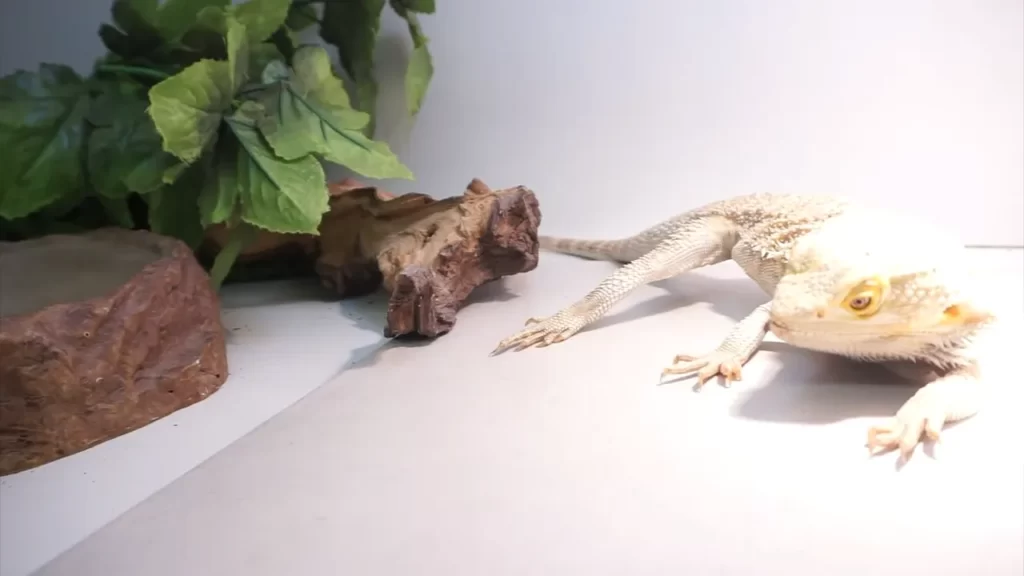
Can Bearded Dragons Eat Pickles?
Discussing the possibility and circumstances
The short answer is, that bearded dragons can consume pickles, but it’s not necessarily in their best interest. While the basic cucumber component of a pickle is relatively harmless, the added ingredients pose potential issues.
Analysis of nutritional aspects of pickles for bearded dragons
The salt and vinegar present in pickles aren’t ideal for bearded dragons. High sodium can lead to dehydration, and the acidic nature of vinegar might upset a dragon’s stomach. Moreover, the spices added for flavoring don’t offer any nutritional value and might even be harmful in some cases.
Pros of Feeding Pickles to Bearded Dragons
Exploring potential benefits
In very small amounts, pickles could provide a change in taste and texture that might intrigue a bearded dragon. They can offer:
- Hydration: Given their water content.
- Trace minerals: From the original cucumber content.
Assessing the possible positive nutritional impact
However, when we analyze the broader nutritional spectrum, pickles don’t provide the significant vitamins or minerals that bearded dragons need. Their protein content is negligible, and they don’t supply the essential nutrients found in other vegetables or insects.
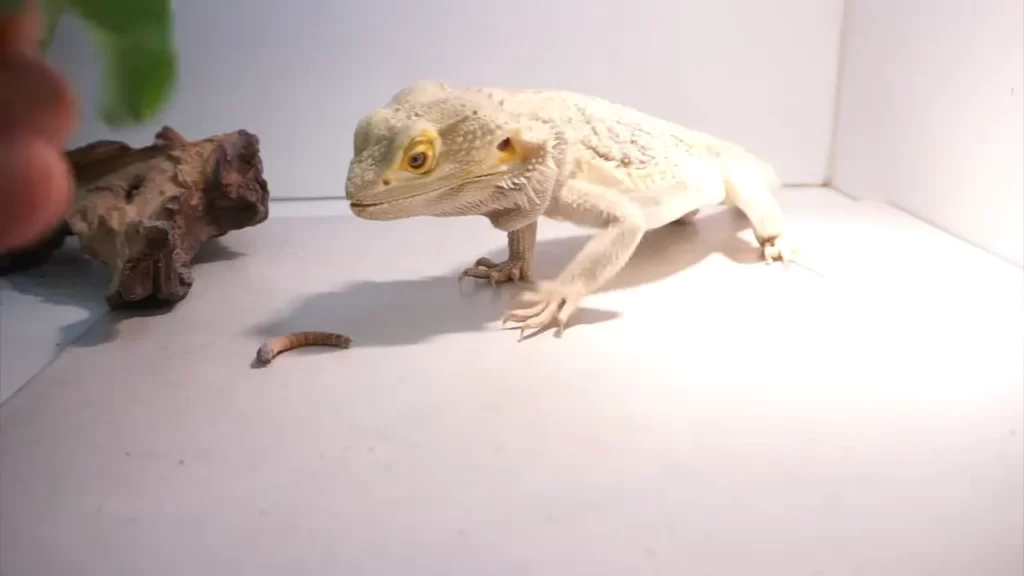
Cons and Risks
Detailed overview of the drawbacks and risks
Feeding pickles to bearded dragons comes with several risks:
- High Sodium: This can lead to dehydration and kidney issues in bearded dragons.
- Acidity: The vinegar used can disrupt the pH balance in the dragon’s stomach.
- Potential toxins: Some spices or herbs used in pickling might be toxic to reptiles.
Explanation of why pickles may or may not be suitable
Given the risks associated, it’s evident that pickles aren’t an ideal food choice for bearded dragons. While they might not cause immediate harm in tiny quantities, regular consumption can lead to health issues. It’s always best to stick to a diet that aligns more closely with a bearded dragon’s natural eating habits in the wild.
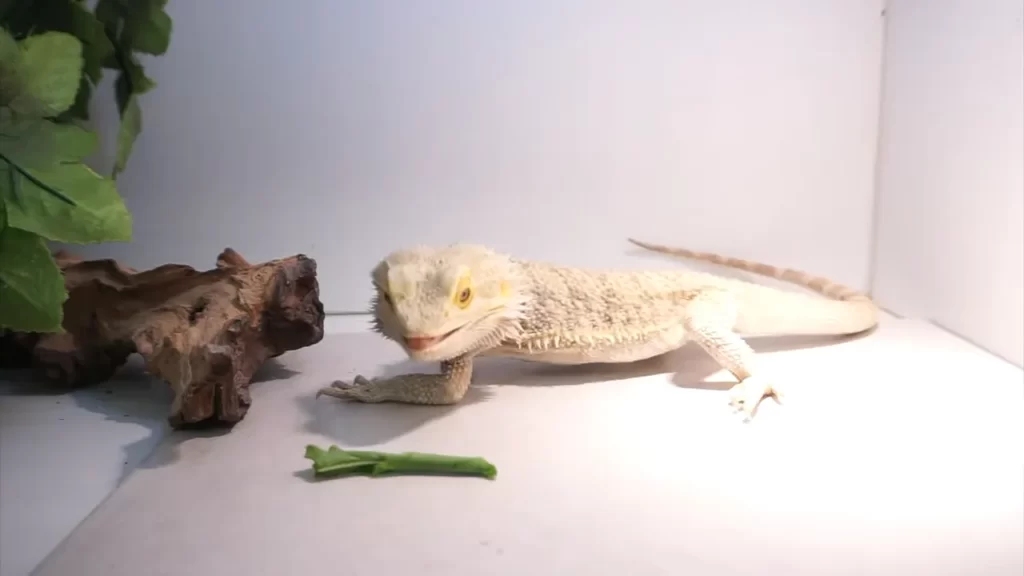
Scientific Findings
Bearded dragons, known scientifically as Pogona vitticeps, have been subjects of numerous studies, primarily focusing on their diet, behavior, and habitat. Interestingly, their diet, as studied in their natural habitat and in captivity, can reveal a lot about their nutritional needs and preferences.
Overview of Any Scientific Studies or Findings
When we turn to scientific literature, there isn’t a wealth of specific research focused on bearded dragons consuming pickles. However, some studies have explored the broader realm of reptile nutrition and how various diets affect their health.
For example, research has indicated that a bearded dragon’s diet should be a mix of insects, vegetables, and fruits. The balance among these changes as the bearded dragon grows from a juvenile to an adult. Juveniles require more protein, hence more insects, while adults require more greens.
Expert Opinions on Bearded Dragons Consuming Pickles
Renowned reptile nutritionists and herpetologists emphasize the importance of providing a varied diet to bearded dragons. While they don’t outright reject the idea of offering pickles, most suggest feeding them in moderation, if at all.
Dr. Jane Herbert, a leading reptile veterinarian, states that “While pickles aren’t toxic to bearded dragons, they aren’t a natural part of their diet and can be high in salt and other additives, which aren’t ideal for reptiles.”
Practical Implications
Understanding the practical side of feeding bearded dragons is crucial for pet owners. It’s not just about knowing what’s healthy but also about recognizing the potential impacts of different food items on their pets.
Discuss Real-life Implications and Situations
Feeding pickles to bearded dragons, especially in large quantities or frequently, can lead to digestive issues. The high salt content can dehydrate them, leading to kidney problems in the long run. Furthermore, pickles can upset the balance of the gut flora, which aids in digestion.
Pet owners have reported varied reactions from their bearded dragons after consuming pickles. Some show signs of discomfort, while others seem to enjoy the treatment without any immediate adverse effects.
Possible Effects on a Bearded Dragon’s Health and Well-being
Consistent intake of pickles might lead to long-term health problems such as kidney issues due to the salt content. Additionally, any additives or preservatives in pickles can be harmful. It’s crucial to monitor any changes in behavior, stool, or physical health after introducing a new food item.
Alternatives to Pickles
Instead of pickles, there are many safe and nutritious alternatives for bearded dragons that cater to their dietary needs.
Suggestions for Other Food Options
- Leafy greens: Kale, dandelion greens, and collard greens are excellent choices.
- Vegetables: Squash, carrots, and bell peppers can be offered.
- Fruits: Occasional treats of berries, apples, and melons are appreciated by bearded dragons.
- Insects: Crickets, mealworms, and roaches serve as protein sources.
Tips for Maintaining a Healthy Diet for Bearded Dragons
- Variety: Offer a mix of food items to ensure all nutritional needs are met.
- Moderation: Even with healthy food, moderation is key.
- Avoid processed foods: Natural, fresh food is always the best choice.
Tips for Feeding Bearded Dragons
Being knowledgeable about the dietary needs of bearded dragons and ensuring they get the right nutrients is essential for their health and longevity.
Guidelines and Precautions
- Always wash vegetables and fruits before offering them.
- Ensure insects are sourced from reputable suppliers to avoid contamination.
- Remove any uneaten food to prevent it from rotting.
Ensuring a Healthy and Balanced Diet
- Stick to a feeding schedule that aligns with the dragon’s age.
- Ensure the dragon has access to clean, fresh water at all times.
- Periodically consult with a reptile veterinarian for dietary advice and health check-ups.
Frequently Asked Questions
What are the main components of a bearded dragon’s diet?
Bearded dragons mainly consume a mix of insects, vegetables, and fruits. Their diet varies based on their age, with younger dragons eating more insects and adult dragons leaning more towards vegetables.
Are cucumbers safe for bearded dragons?
Yes, in moderation. Fresh cucumbers, when offered occasionally and devoid of any additives or seasonings, can be a hydrating snack for bearded dragons. However, they shouldn’t form a major part of their diet.
Why are pickles not ideal for bearded dragons?
Pickles undergo a fermentation process, which introduces vinegar and increases their sodium content. These elements, especially in large quantities, are not suitable for bearded dragons.
Can bearded dragons consume other fermented foods?
Generally, fermented foods are not recommended for bearded dragons. It’s always best to consult with a vet or reptile expert before introducing any new food items.
Conclusion
When it comes to the health and well-being of our beloved pets, taking a meticulous approach to their diet is paramount. Bearded dragons, with their eclectic dietary preferences, require an assortment of nutrients to thrive. While they might exhibit curiosity towards various foods, including pickles, it’s our responsibility to discern what’s best for them.
In the grand scheme of things, pickles might seem like a minuscule concern. However, when we zoom into the specifics of a bearded dragon’s dietary needs, even small imbalances can lead to larger health issues. As caretakers, our primary goal should always be to provide them with a balanced diet that mirrors their natural eating habits.
